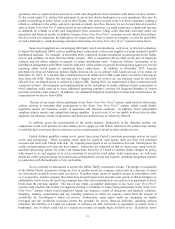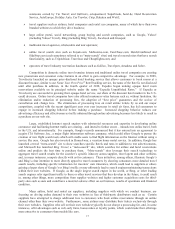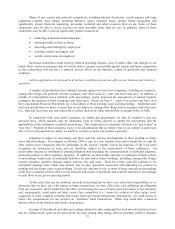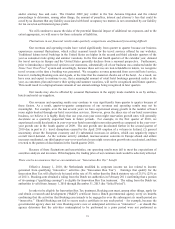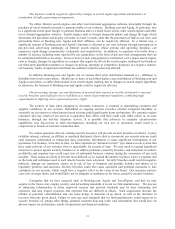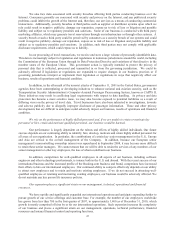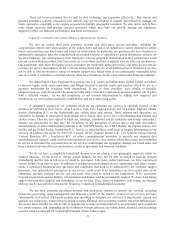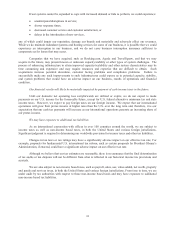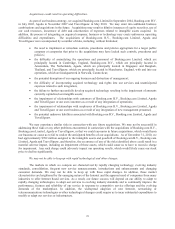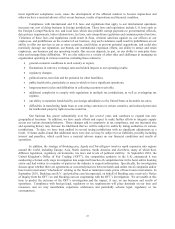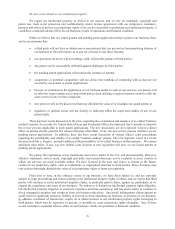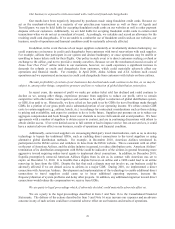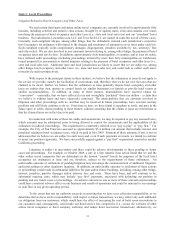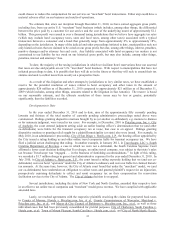Priceline 2010 Annual Report Download - page 98
Download and view the complete annual report
Please find page 98 of the 2010 Priceline annual report below. You can navigate through the pages in the report by either clicking on the pages listed below, or by using the keyword search tool below to find specific information within the annual report.24
If our systems cannot be expanded to cope with increased demand or fails to perform, we could experience:
x unanticipated disruptions in service;
x slower response times;
x decreased customer service and customer satisfaction; or
x delays in the introduction of new services,
any of which could impair our reputation, damage our brands and materially and adversely affect our revenues.
While we do maintain redundant systems and hosting services for some of our business, it is possible that we could
experience an interruption in our business, and we do not carry business interruption insurance sufficient to
compensate us for losses that may occur.
Companies that we have acquired, such as Booking.com, Agoda and TravelJigsaw, and that we may
acquire in the future, may present known or unknown capacity/stability or other types of system challenges. The
process of enhancing infrastructure to attain improved capacity/scalability and other system characteristics may be
time consuming and expensive and may require resources and expertise that are difficult to obtain. Such
acquisitions increase potential downtime, customer facing problems and compliance problems. Failure to
successfully make any such improvements to such infrastructures could expose us to potential capacity, stability,
and system problems that would have an adverse impact on our business, results of operations and financial
condition.
Our financial results will likely be materially impacted by payment of cash income taxes in the future.
Until our domestic net operating loss carryforwards are utilized or expire, we do not expect to make
payments on our U.S. income for the foreseeable future, except for U.S. federal alternative minimum tax and state
income taxes. However, we expect to pay foreign taxes on our foreign income. We expect that our international
operations will grow their pretax income at higher rates than the U.S. over the long term and, therefore, it is our
expectation that our cash tax payments will increase as our international operations generate an increasing share of
our pretax income.
We may have exposure to additional tax liabilities.
As an international corporation with offices in over 100 countries around the world, we are subject to
income taxes as well as non-income based taxes, in both the United States and various foreign jurisdictions.
Significant judgment is required in determining our worldwide provision for income taxes and other tax liabilities.
Changes in tax laws or tax rulings may have a significantly adverse impact on our effective tax rate. For
example, proposals for fundamental U.S. international tax reform, such as certain proposals by President Obama’s
Administration, if enacted, could have a significant adverse impact on our effective tax rate.
Although we believe that our tax estimates are reasonable, there is no assurance that the final determination
of tax audits or tax disputes will not be different from what is reflected in our historical income tax provisions and
accruals.
We are also subject to non-income based taxes, such as payroll, sales, use, value-added, net worth, property
and goods and services taxes, in both the United States and various foreign jurisdictions. From time to time, we are
under audit by tax authorities with respect to these non-income based taxes and may have exposure to additional
non-income based tax liabilities.



